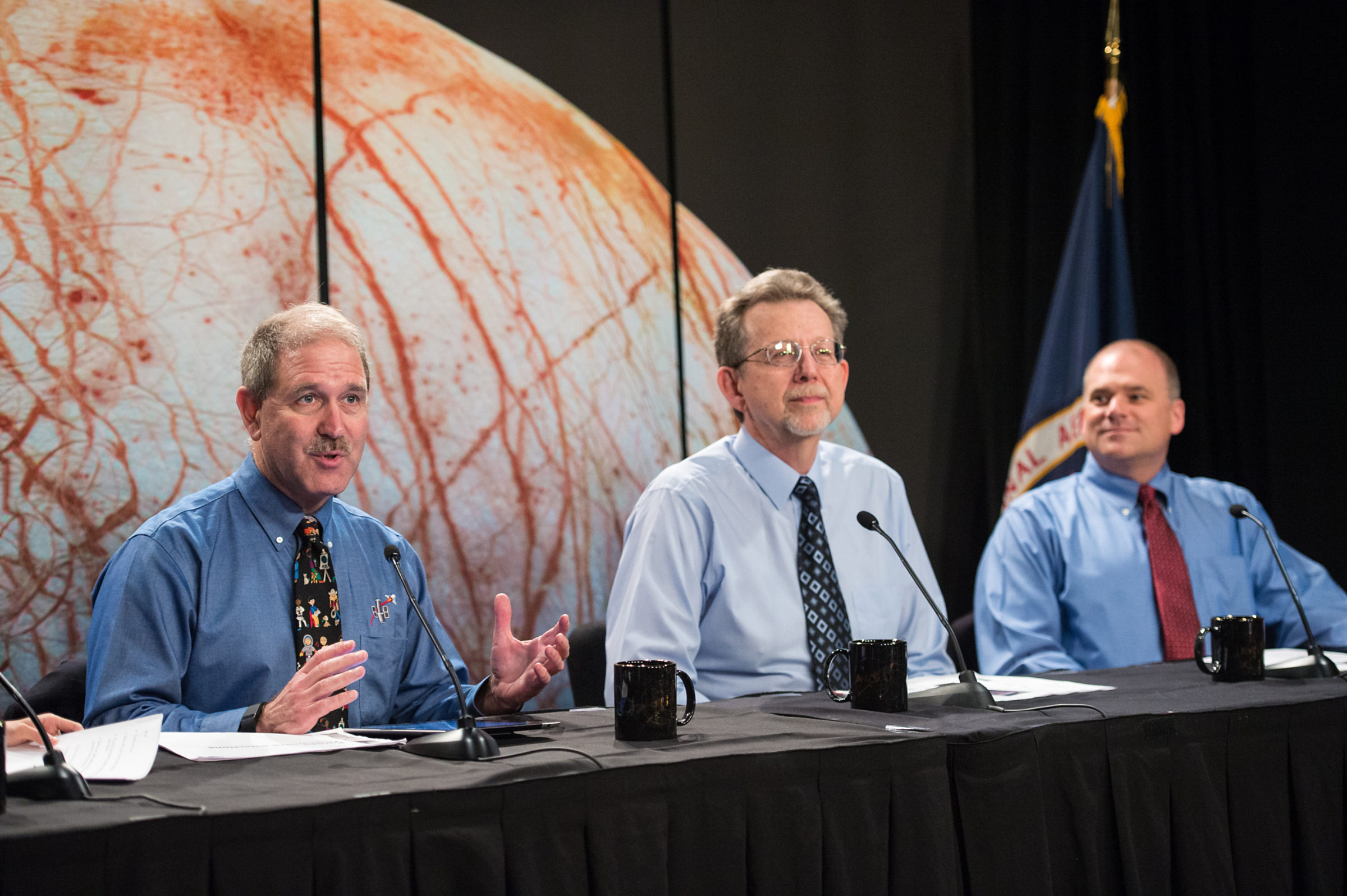Casey Dreier • May 27, 2015
Why We Don't Know When the Europa Mission Will Launch
During the recent press conference announcing the scientific instrument package on the upcoming Europa mission, NASA's Planetary Science Division Director Jim Green was asked when the mission would be ready to launch.
"We expect it to be launched in the 2020s...whether it's mid, or a little early or a little later, needs to be worked out based on a much firmer cost estimate and a profile that would support it," said Green.
If this answer seems heavily hedged, it is. The reason is not orbital mechanics. It's that the Europa mission is currently caught up in a fight over funding priorities between the White House and Congress: powerful members of Congress want the mission to happen sooner; the White House would rather support other programs within NASA.

After years of false starts, canceled missions, and preliminary studies, the White House agreed to start a new mission to Europa in this year's budget request for NASA. However, it proposed to spend a relatively small amount of money over the next five years to begin formulating the mission, starting with $30 million in 2016. This funding level is too little to support a launch in the early 2020s, and perhaps even the mid-2020s.
The House of Representatives, meanwhile, has aggressively supported a major mission to Europa, supplying hundreds of millions of dollars over the past few years despite the lack of official NASA requests for this funding. Just a few weeks ago, the House proposed a NASA spending bill for 2016 that would provide the Europa mission with $140 million—$110 million over the requested amount—and dictates NASA to plan to launch the mission in 2022 on the Space Launch System heavy rocket now under development.
The language in the House bill is not yet law, and Jim Green, as an employee of NASA, must represent the Administration's position on Europa as stated in the budget. This is why a launch date is currently hard to pin down: it very much depends on how much money is ultimately provided to the mission, how consistently, and whether the Administration itself ultimately decides to request significant increases in funding over the next few years.
The reasons for this come down to funding priorities within NASA. The White House generally favors Commercial Crew, Space Technology, Earth Science, and the James Webb Space Telescope. Planetary Science has not been high on their list since the large cuts to the program they first proposed in 2012. Even as recently as 2014, the President's Budget Request for NASA made unusually explicit statements that "NASA is not able to support development of an Outer Planets Flagship mission in the foreseeable future." Fortunately, that attitude has changed, but years have been lost to get this mission off the ground (so to speak).
Getting a Europa mission to launch by 2022 is aggressive, but doable. The trick is providing the funding in a way that maintains balance within the Planetary Science Division (the Mars 2020 rover, for example, is another large mission set to launch within a similar time frame), as well as NASA's larger science portfolio. Once the Administration and Congress agree on this priority, we'll have a clearer idea of a launch date.
Of course, the bigger issue here is that NASA is tasked with doing too much with too little funding. Congress has actually done a very good job funding NASA the past few years given the overall spending limits imposed by the 2011 Budget Control Act. But until its budget can grow to accommodate its mission, issues like the Europa launch date will persist.


 Explore Worlds
Explore Worlds Find Life
Find Life Defend Earth
Defend Earth

